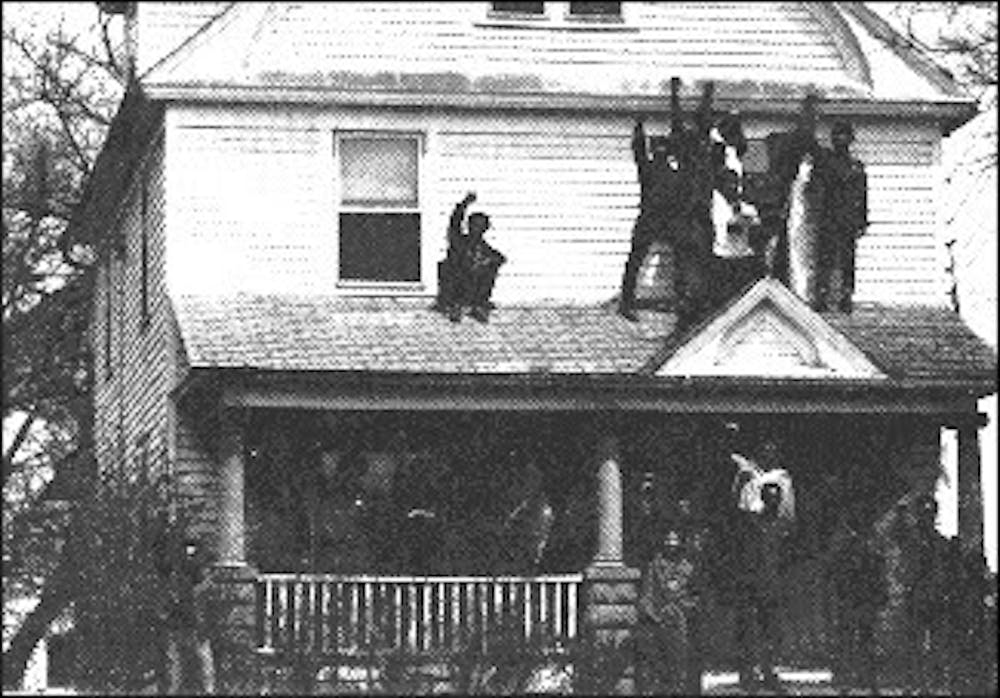Rooted in the work of Black activists and the Black Lives Matter movement, discussions surrounding racism and the Black experience have been revitalized in mainstream discourse across the nation. But today’s initiatives taken by Brown and universities across the country to center the Black experience engage in an often forgotten legacy created by and for the Black community — one that began on college campuses.
In Feb. 1969, Black students and educators at Kent State University proposed a month to celebrate Black history in the United States. One year later, KSU held the first celebrations of Black History Month in our nation.
“Before it was even recognized nationally, it was something exclusively celebrated on college campuses,” said Jonathan Collins, assistant professor of education.
The tradition and celebration of Black History Month has always included “the college student being at the forefront of disseminating this message that Black is beautiful,” Collins said. Black History Month began as “a way to honor the history of African American contributions to our culture, to our society and to really sort of embrace the image of Black power,” he added.
In 1976, President Gerald Ford officially recognized Black History Month nationally. At the United States Bicentennial, Ford urged the country to “join (him) in tribute to Black History Month and the message of courage and perseverance it brings to all of us.”
Prior to the government recognition of Black History Month, Black students at Brown had already created a legacy of elevating Black voices in a predominantly white institution. Black fraternities created space and community for Black students, and figures like Inman Page, George Washington Milford, Ethel Robinson and Saunders Redding led the way for future Black students and faculty members.
Throughout the 1970s, celebrations of Black History Month continued to expand to college campuses across the nation, including Brown. University events brought Black educators to the forefront of conversations on campus, discussing Black identity and the Black experience. Political conversations held by professors discussed Blackness in a political context, and campus organizations created space for the Black community with socially and culturally-focused events.
Celebrations of Black History Month in the first decades of its founding “more so centered on a celebration of Pan-Africanism” and newfound “Black pride that was steeped in the spirit of the Black Freedom Movement,” Collins said.
According to Collins, the movement has “dissolved into more of the celebration of history and historical figures” and “a moment to honor Black figures across different aspects of our society.”
But in the wake of the killings of Black Americans including George Floyd, Breonna Taylor and Ahmaud Arbery, protests across the nation over the past year stand to change the way Black History Month was celebrated in 2021 and will be in the near future.
“Black History Month is born out of protest,” Collins said. In light of the “momentum” created by the Black Lives Matter movement and protests in 2020, Collins expects that “the need to stand up for and reassert the humanity of Black people” changed celebrations this year and will continue to make Black History Month “reminiscent of how it all really started on a campus in Kent State University.”
Today, students continue to be at the forefront of elevating Black voices on campus. One such organization, the Afro-Latinx Alliance, highlights the diversity within Black identity at Brown.
Founded in spring 2019, the organization’s programming aims to create space for the Afro-Latinx community, discussing intersectional experiences and “celebrating Blackness in Latin America,” according to ALA Co-President Alexalee Gonzalez ’23.
“To be Black isn’t ... a homogenous, monolithic experience. There’s diversity within Blackness,” Gonzalez said. “Black History Month is the one month where it’s really, really highlighted.”
Moving forward, the organization hopes to incorporate social justice work into its programming, namely to “work with the Black and brown community in Providence,” she said. “We come into their home for this institution, and we’re responsible for also giving back.”
Gonzalez added that being able “to see all of these organizations come together and celebrate (student) identity within the Black identity” was a highlight of Black History Month this year for the ALA.
“Black people are global, Black people have different cultures, different identities (and) come from different countries,” she said. For Gonzalez, the work of Black students and student organizations on campus created “a moment for Black joy and celebrating each other’s talents.”
For Collins, the circumstances of the COVID-19 pandemic have emphasized the importance of creating community for Black students.
“Black students on campuses like Brown always deal with … the issue of inclusion, of feeling like they belong, that they’re part of the campus,” Collins said. “The isolation that comes along with the pandemic augments the negative feelings and the challenges that already come with being a Black student … on a campus like Brown’s.”
Brown needs “to find creative ways of acknowledging, supporting, highlighting and really centering Black students,” Collins said. “In a moment when we feel like we’re all alone, I feel like it’s more important now than ever.”
Image: Kkhemet, CC BY-SA 2.0, via Wikimedia Commons

Jack Walker served as senior editor of multimedia, social media and post- magazine for The Herald’s 132nd Editorial Board. Jack is an archaeology and literary arts concentrator from Thurmont, Maryland who previously covered the Grad School and staff and student labor beats.





